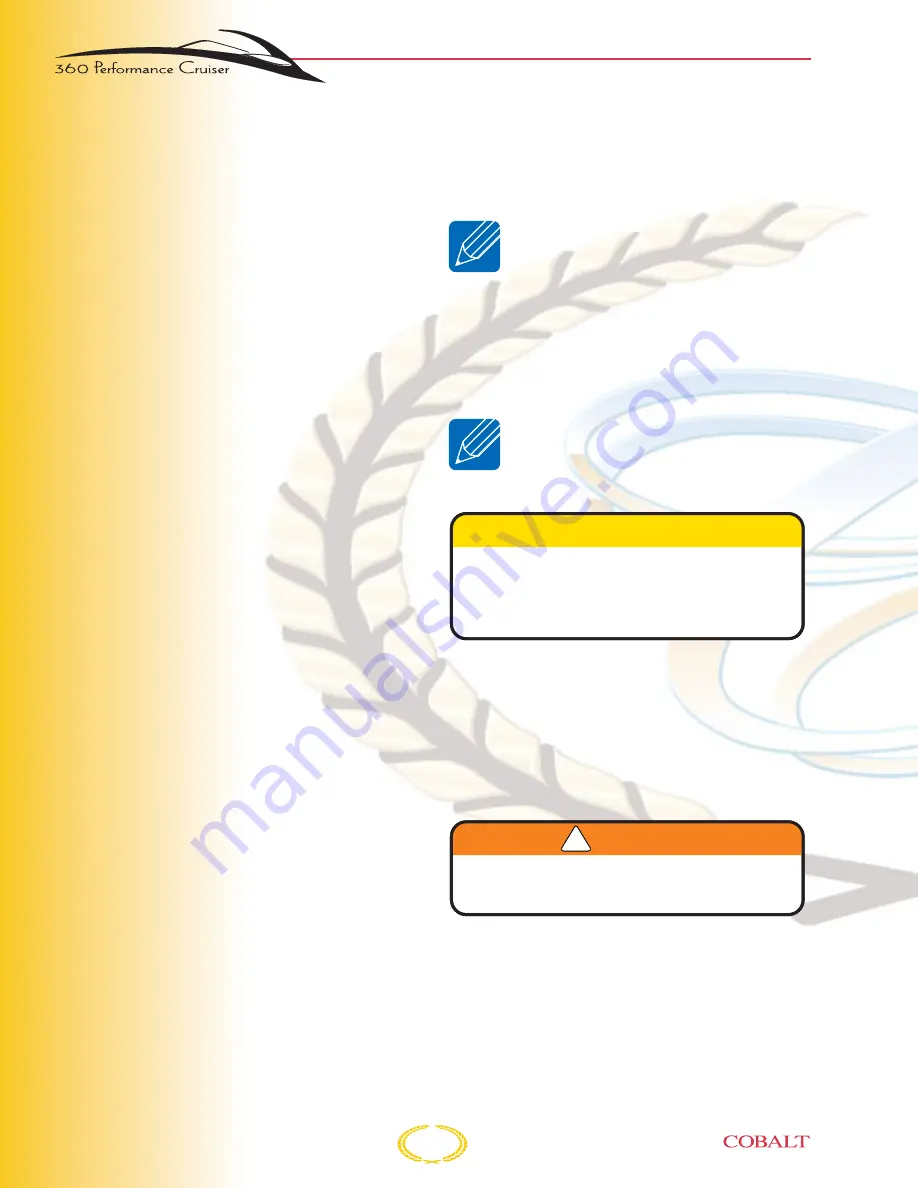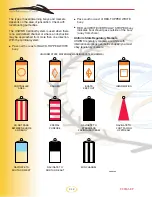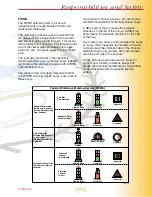
2-14
Qualified Boat Operators
This manual is not intended to provide complete
training on all aspects of boat operation. We
strongly recommend that all operators of this boat
seek additional training on boat handling and
safety. Have all operators become familiar with the
handling characteristics, and proper steering and
control system usage before attempting high-speed
operation.
Some states require youths 16 years of age and
younger to complete a boating safety course
before operating any watercraft. Many others
require operators under the age of 18 to be
licensed in small boat operation.
Minors must be supervised by an adult whenever
operating a boat. Many states have laws regarding
the minimum age and licensing requirements of
minors. Be sure to contact the state boating
authorities for information.
Safety While Boating
Your boat is affixed with various safety labels at
the time of manufacture. These labels appear at
specific locations on the craft where safety is of
particular concern. Refer to
Warning Labels
, in
Section 1
.
Safety labels must remain legible. If you suspect a
label is missing or becomes damaged, please
contact your Cobalt dealer for immediate
replacement.
Federal, State and Local Regulations
The USCG is the authority of the waterways; they
are there to help the boating public. State boating
regulations are enforced by local authorities. You
are subject to marine traffic laws and “Rules of the
Road” for both federal and state waterways; you
must stop if signaled to do so by enforcement
officers, and permit to be boarded as asked.
Discharge of Oil
The discharge of fuel, oil and other chemicals into
the water is prohibited. Be sure to clean up all fuel
and oil spillage in the bilge using rags and
sponges. Properly store and dispose of them
when you get to shore. Do not allow any fuel or oil
spillage to be pumped out into the water. If fuel or
oil leakage continues to be a problem,
immediately have the problem repaired.
When refueling, do not “top-off” the fuel tanks.
Allow for expansion which will reduce fuel spillage
from the fuel tank vents.
Solid Waste Disposal
NOTICE: It is illegal to dispose of any
plastic trash into waters of the U.S.
The disposal of solid waste and plastics into the
water is prohibited. Bag all refuse and properly
dispose of it when you get ashore.
Marine Sanitation
NOTICE: Direct disposal of sanitation
waste into some waters could result in
being fined. Be sure to check local
regulations.
Have your Cobalt dealer properly service the
waste disposal system when needed.
Excessive Noise
Noise limits are regulated in many areas. Be sure
to follow regulations and be courteous.
Wake/Wash
Observe “No Wake” markers. Use caution when
operating around smaller crafts, in channels and
marinas, and in congested areas.
Reporting Accidents
The USCG requires the owner or operator of a
boat involved in an accident, to report the incident
to the proper marine law enforcement agency for
the state in which the accident occurred.
!
WARNING
You are responsible for injury and damage
caused by your wake.
CAUTION
To avoid damaging the waste disposal
system and the environment, do not place
facial tissues, paper towels or sanitary
napkins in the head.
Summary of Contents for 360
Page 1: ...Owner s Manual ...
Page 36: ...2 22 ...
Page 74: ...3 38 ...
Page 108: ...5 14 ...
Page 111: ...6 3 SERVICE LOG Date Hour Reading Service Repairs Performed Checklist Forms and Index ...
Page 112: ...6 4 FUEL LOG Date Gallons Hours Gallons Hour Date Gallons Hours Gallons Hour ...
Page 118: ...6 10 ...
Page 119: ......
















































